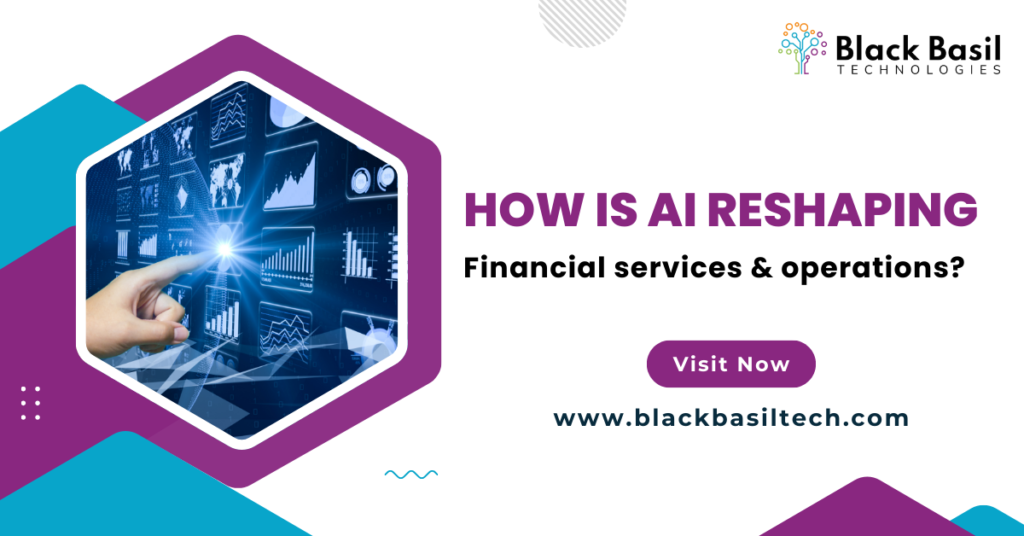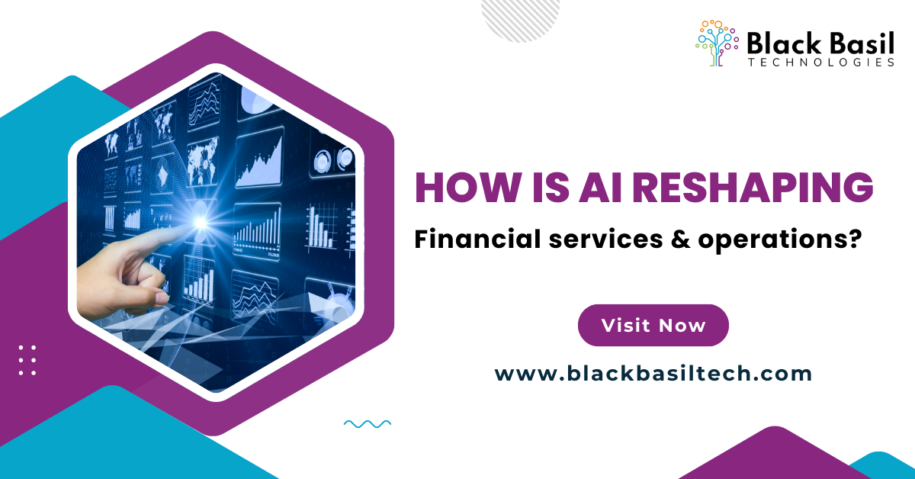
AI in Finance
As a set of technologies, AI allows financial organisations to improve their processes, including analysing data, automating tasks, or enhancing decision-making. It can be applied in performance measurement, data analytics, calculations, customer service, and much more. By enhancing accuracy and speed, AI is revolutionising the finance industry, ushering in a new era of data-driven decision-making and higher efficiency.
Areas of Revolution
Here are some areas AI is being a force of change in the financial industry:
-
Automation: AI automates repetitive, monotonous, and time-consuming tasks, allowing for faster and more accurate processing of large amounts of data.
-
Technology: AI aids financial institutions to stay ahead in terms of technology in the industry, thus encouraging innovation.
-
Cost handling: Automation of tasks reduces manual labour, improves efficiency, and streamlines workflows, ultimately minimising operational costs.
-
Compliance adherence: Besides tasks, AI ensures compliance to regulations through automating monitoring.
-
Data analysis: Large amounts of data can be analysed by AI to present insights and trends, allowing for improved decision-making based on informed research. It can also support predictive analysis, enabling finance professionals to be aware of potential risks, market trends, and customer behaviour. Lastly, AI is also capable of sentiment analysis as it has the ability to gauge and analyse market sentiment,
-
Customer contact: AI reduces the need for human intervention by completing routine tasks round the clock while still providing personalised customer service.
Ways of Implementation
As we have now established, financial institutions are leveraging AI in several ways to improve their decision-making capabilities and overall efficiency. Some of these applications include:
Customer Service:
Conversational AI in banking and finance has proved revolutionary for customer care. AI powered virtual assistants and chatbots that utilise Natural Language Processing (NLP) can address volumes of customer queries in real time and efficiently. Due to Conversational AI in banking’s ability to understand complex questions related to finance and respond accurately and quickly, they can handle transactions, check account details, and much more. AI algorithms are also analysing customer feedback to present sentiments and preferences, enabling financial institutions to improve customer support quality.
Financial Planning:
Sophisticated AI algorithms can provide personalised and affordable investment advice and solutions. Financial institutions can leverage the insights collected by AI to present strategies based on individual risk tolerance, preferences, and goals. Institutions are also being able to use AI to generate personalised and accurate financial forecasts to enable optimum financial planning. This further allows clients to optimise their strategies by making informed decisions.
Customer Screening:
Through AI, customers’ buying behaviour can be analysed which allows financial institutions and banks to be aware in case of unusual spends. It is also playing a role in the management of risk. By removing the element of manual evaluation and subjectivity, the introduction of AI has made credit risk assessment models more efficient and accurate.
Financial Report Generation:
Considering AI’s ability to analyse massive amounts of financial data, financial institutions are leveraging it to generate error-free and comprehensive financial reports. This extends to both real-time financial reports and automated regulatory reports.
Trading:
Applied specifically in investment banking, AI is having a transformative effect on stock trading. It is being used for algorithmic trading, which allows for a high-speed, accurate and data-driven decision -making process. It is based on real-time data and market trends, allowing for precise and efficient trades. Conversational AI plays a role here as well as it processes queries from traders to add on to the real-time data and market insights being generated.
What’s Next?
The benefits of the usage of AI in finance are clear. It contributes to operational efficiency, improved customer experience, accuracy, speed and precision, and gives a competitive edge through innovation. Based on these advantages, it is evident why and how AI is revolutionising the financial sector. Moving forward, AI will drive the growth of financial services. More organisations will need to focus on the personalisation of these services to stay ahead, an area where AI will undoubtedly play a key role.



Leave a Reply